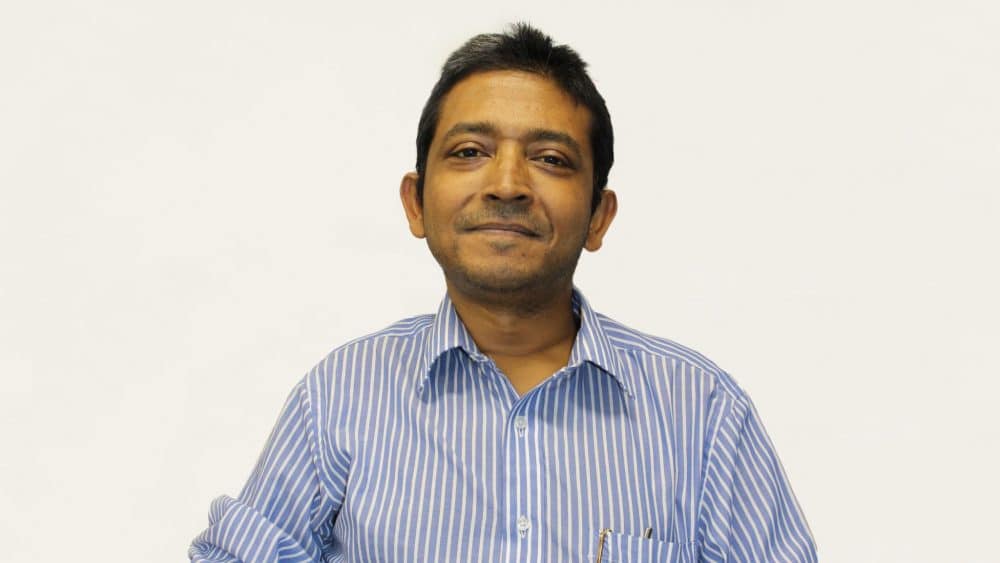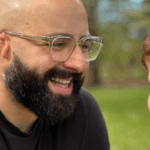MED-EL
Published Nov 30, 2016
Through the Eyes of a CI Surgeon in Australia: A Chat With Dr. De

Dr. Ranit De is an Ear, Nose, & Throat (ENT) specialist based in Australia. He performs cochlear implant surgery on children and adults. After moving from the United Kingdom to Queensland, Australia, Dr. De worked with colleagues to set up the first cochlear implant and hearing implant service in his new hometown. This is the first segment of a two-part series with Dr. De, where he’ll be sharing his experiences with cochlear implant surgery. In this first segment, we find out from Dr. De about his career so far in cochlear implantation, from how his interest in Otology (the science of our ears) began, to exciting future implant technology, to a remarkable patient story.
“Giving a person back their hearing so they can go back to study or work, or so they can communicate with their families—there is nothing like it!”
Thanks for talking with us, Dr. De! Firstly, how did you become interested in cochlear implant surgery?
There are many reasons why ENT was my choice of specialty. I was very interested in physiology—the science of how things work within the body, for example how sound becomes a nerve signal in the brain. Being of a small frame and having very fine and delicate hands, I enjoy very delicate forms of surgery. I love the technology side of medicine, and cochlear implants are at the cutting edge of medical technology. Most of all I wanted to be able to contribute to a patient’s quality of life. Giving a person back their hearing so they can go back to study or work, or so they can communicate with their families–there is nothing like it!
“Hearing impairment is a disability that is not immediately obvious to the general population, and is often underestimated, and poorly dealt with by strangers.”
What is your professional background?
I studied and trained my whole life in the UK, graduating from medical school in the early 1990s. I worked at University Hospital Birmingham, the second largest hospital in the UK, as a cochlear implant and skullbase surgeon. I gained experience with a variety of implantable devices, including the VIBRANT SOUNDBRIDGE from MED-EL. After some years, I moved to Toowoomba, Australia. There was no cochlear implant service here, and patients had to drive for two hours to the nearest CI center. With the help of my colleagues, I decided to set up a CI and hearing implant service, and we haven’t looked back since.
“The future is uncertain, but exciting. There are a lot of things that are being researched at present which will come into fruition in the next few years.”
What interests you most about hearing loss and cochlear implant surgery?
There are many types of disabilities that people have, and modern society is considerate and takes great care of these issues. However, hearing impairment is a disability that is not immediately obvious to the general population and poorly dealt with by strangers. For example, if someone is blind or is in a wheelchair, people are immediately aware of their disability and make allowances for that. But a person with a hearing impairment has no obvious outward identifying features that tell strangers they are deaf.
I find the effects of hearing impairment fascinating, and yet sad, because the consequences are significant. For example, a hearing impaired child from birth may never develop the pathways or connections in the brain required to generate speech, if they do not get auditory or acoustic stimulation by the age of four years. This has a far greater impact on their overall development than being blind, for instance. Cochlear implants can enable children with hearing impairment to develop speech, and go into mainstream education. CIs can also help people to return to work or even use a telephone—all of which they might not have been able to do without having a cochlear implant.
What do you see for the future in this field?
The future is uncertain, but exciting. There has been much development in the area of implant design, for example flexible electrodes to enable preservation of residual hearing. There are a lot of things that are being researched at present which will come into fruition in the next few years. For instance, many people requiring cochlear implants have balance problems—the same disease causing hearing loss may well destroy the balance function in the same ear. A very useful development would be a “bionic” implant that incorporates both hearing and balance components.
Another area being researched at present is the administration of drugs, or even genetic material, directly into the cochlea via a cochlear implant electrode array, to enable better implant outcomes or even hair-cell regeneration.
What patients do you usually see for CI?
There are two broad groups of patients requiring cochlear implants. The first are children born profoundly deaf, or with rapidly deteriorating hearing. These children have not yet acquired speech, and so it is crucial to implant them as quickly as is safely possible. It is also better to implant these profoundly deaf children with two cochlear implants, one for each side, to offer them the best chances of development.
The second group is older children or adults, who had hearing, developed speech, but then due to illness or accident lost their hearing. It is less complicated to help these people. The majority of people I help are older or elderly people with significant hearing loss. This can be from family history, traumatic noise exposure, ear-poisoning drugs or ageing.
Do you have a favorite story from a patient?
There is a remarkable patient who I saw a few years ago. She was 60 years old and had progressive liver failure. She was wheelchair bound, and was profoundly deaf—unable to communicate with even her husband. She and her husband were desperate for her to have a cochlear implant. However, her specialist told me that she wouldn’t survive for more than a few more months. “She won’t get past Christmas” he said. With this in mind, I knew she wouldn’t get much use out of the implant due to the long rehab process. Her illness also meant the surgery would be risky due to the anesthetic. I had no choice but to turn her down. She was very upset, and she and her husband left. I had advised them to consider learning how to sign, and also for her to take some lip-reading classes.
Remarkably, after this first meeting, for the next two years, the patient came back in with her husband, again asking for a cochlear implant. However each time I had to turn them away, as the risks were too high and she was only expected to survive for a few months more.
Three years pass since our first meeting, and the patient was once again in my waiting room. She put up her hand and said, “I am still alive—can I have an implant?” “Damn right you can!” I replied. Despite a reasonably high risk for the operation due to her health, she wanted the surgery to go ahead. I called her specialist and my anesthetist, and told them I had decided to take the risk and do this lady’s cochlear implant.
She flew through the operation without any issues. The day after surgery, the implant was switched on, and she could hear straight away! There were a lot of tears from her, her husband, and even the audiologist. Two days after the cochlear implant surgery she went home without any problems.
I saw this patient regularly over the next few weeks and months, and she was doing really well. I bumped into her liver specialist one day, and he said to me “What have you done?” I asked him what he meant. He said, “Previously when she used to come and see me, she would sit in her wheelchair in the corner, and her husband and I chatted about things. Last week when I saw her, she and her husband chatted away during the whole consultation, and I didn’t get a chance to speak at all!”
Thanks, Dr. De!
Having your cochlear implant surgery soon? Find out our tips on what questions to ask before surgery.
Liked this post all about cochlear implant surgery? Subscribe to the MED-EL Blog to get all the latest exclusive interviews, technology news and rehabilitation tips sent straight to your inbox twice a week!
MED-EL
Was this article helpful?
Thanks for your feedback.
Sign up for newsletter below for more.
Thanks for your feedback.
Please leave your message below.
Thanks for your message. We will reply as soon as possible.
Send us a message
Field is required
John Doe
Field is required
name@mail.com
Field is required
What do you think?
MED-EL


